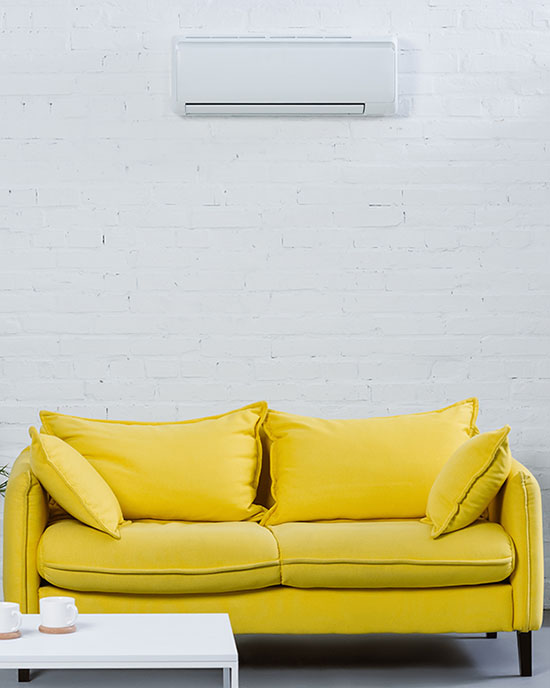What You Should Know About Indoor Air Quality And Humidity Control
You spend a significant amount of time indoors, whether it’s at home or in the office. But have you ever stopped to consider the quality of the air you’re breathing in? Indoor air quality is often overlooked, yet it has a significant impact on your health and well-being. In this article, we’ll discuss what you should know about indoor air quality and humidity control, so you can take steps to ensure that your indoor environment is as healthy as possible.
One of the most important factors affecting indoor air quality is humidity. Humidity levels that are too high or too low can lead to a host of health problems, including respiratory issues, allergies, and skin irritation. It’s essential to understand how humidity affects your health and how you can control it to maintain optimal indoor air quality. We’ll cover everything you need to know about humidity control, including tips for maintaining healthy humidity levels and the tools and equipment you’ll need to do so. By the end of this article, you’ll be equipped with the knowledge you need to create a healthy, comfortable indoor environment.
The Basics of Indoor Air Quality
The fundamentals of indoor air quality can be easily understood by recognizing its impact on your respiratory health. Common pollutants like dust, pet dander, and mold can trigger asthma and other respiratory problems. Poor indoor air quality can also cause headaches, fatigue, and irritation of the eyes, nose, and throat.
To maintain good indoor air quality, proper ventilation systems are crucial. They help to remove pollutants and bring in fresh air from outside. Regularly cleaning and changing air filters can also help to improve indoor air quality. By being aware of the common pollutants and taking steps to improve ventilation, you can ensure that the air you breathe indoors is healthy and clean.

Understanding Humidity and Its Effects on Health
Understanding humidity and its effects on health can be compared to feeling like you’re walking through a thick, sticky swamp. High humidity levels in your home can lead to a variety of health issues such as allergies, asthma, and respiratory problems. When the air is too humid, it becomes a breeding ground for mold, mildew, and dust mites, all of which can trigger allergic reactions and aggravate existing conditions. In addition, high humidity levels can make you feel uncomfortable, lethargic, and even lead to dehydration.
To combat humidity-related health issues, it’s important to regulate the humidity levels in your home. One way to do this is to use a dehumidifier, which removes excess moisture from the air. Another strategy is to use ventilation fans in bathrooms and kitchens to reduce moisture levels. In addition, keeping your home at a consistent temperature can help manage humidity levels. By taking these steps, you can create a healthier and more comfortable living environment for you and your family.
The Risks of Poor Indoor Air Quality
Hey, did you know that poor indoor air quality can cause a range of health risks? You may not realize it, but the air inside your home or workplace can be more polluted than the air outside. This is due to a variety of factors, such as inadequate ventilation, the use of certain household cleaners and chemicals, and even the materials used in building and furnishing your space.
Breathing in these pollutants over time can lead to a variety of health hazards, such as respiratory problems, allergies, and even cancer. Poor ventilation can also cause an increase in humidity levels, which can lead to the growth of mold and mildew. These can trigger asthma attacks and other respiratory issues, especially in those with preexisting conditions. So, it’s important to take steps to improve indoor air quality, whether by ensuring proper ventilation or using air purifiers and dehumidifiers. Remember, your health is too important to take chances with the risks of indoor pollution.
Tips for Controlling Humidity Levels
To maintain a comfortable and healthy living environment, it’s crucial to keep humidity levels in check. High humidity levels can lead to mold growth, which can cause respiratory problems and allergic reactions. On the other hand, low humidity levels can cause dry skin, respiratory issues, and even damage to furniture and electronics.
One of the most effective ways to control humidity levels is by using a dehumidifier. Dehumidifiers can help reduce moisture in the air, preventing mold growth and improving indoor air quality. Additionally, dehumidifiers can also help reduce energy costs by making your air conditioning system more efficient. To further prevent mold growth, it’s also important to fix any leaks or water damage as soon as possible and ensure proper ventilation in areas with high moisture levels, such as bathrooms and kitchens. By taking these steps, you can maintain a comfortable and healthy living environment for you and your loved ones.
Tools and Equipment for Maintaining Indoor Air Quality
Maintaining a healthy home environment is easier with the right tools and equipment, such as air purifiers and HVAC systems. Air purifiers can help remove harmful pollutants and allergens from the air, improving the overall indoor air quality. They work by drawing in the air and passing it through a filter that traps pollutants like dust, pollen, and pet dander. There are different types of air purifiers available in the market, including HEPA filters, activated carbon filters, and UV-C light filters. Choosing the right type largely depends on your specific needs and the size of your home.
Dehumidifiers are another useful tool for controlling indoor humidity levels. They work by removing excess moisture from the air, which can help prevent the growth of mold and mildew. High humidity levels can also make your home feel stuffy and uncomfortable, which can lead to health issues like respiratory problems. If you live in a humid area or have noticed condensation on your windows, a dehumidifier can be a great investment. They come in different sizes and capacities, so it’s important to choose one that’s appropriate for your space. By using air purifiers and dehumidifiers, you can improve your indoor air quality and create a healthier, more comfortable home environment.

Conclusion
Overall, ensuring good indoor air quality and controlling humidity levels is crucial for your health and wellbeing. By understanding the basics of indoor air quality and the effects of humidity on health, you can take necessary steps to improve your indoor environment.
Remember to keep your home well-ventilated, clean and dry to prevent mold growth and improve air circulation. Use tools and equipment such as dehumidifiers and air purifiers to maintain good indoor air quality. By taking these steps, you can breathe easy and enjoy a healthy and comfortable home. So, take charge of your indoor air quality and humidity control today for a healthier living environment.







